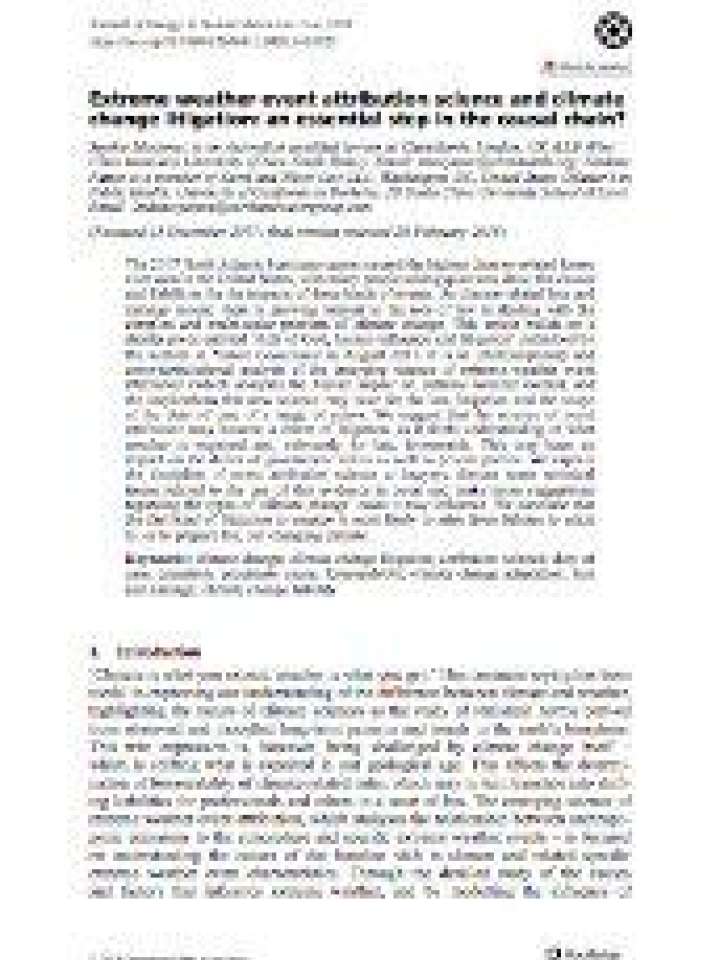Extreme weather event attribution science and climate change litigation: An essential step in the causal chain?
The 2017 North Atlantic hurricane season caused the highest disaster-related losses ever seen in the United States, with many people asking questions about the causes and liabilities for the impacts of these kinds of events. As climate-related loss and damage mount, there is growing interest in the role of law in dealing with the complex and multi-scalar problem of climate change.
This article builds on a shorter piece entitled ‘Acts of God, human influence and litigation’ published by the authors in Nature Geoscience in August 2017. It is an interdisciplinary and cross-jurisdictional analysis of the emerging science of extreme weather event attribution (which analyses the human impact on extreme weather events), and the implications this new science may have for the law, litigation and the scope of the duty of care of a range of actors.
This article suggests that the science of event attribution may become a driver of litigation, as it shifts understanding of what weather is expected and, relevantly for law, foreseeable. This may have an impact on the duties of government actors as well as private parties. This article explains the discipline of event attribution science to lawyers, discusses some technical issues related to the use of this evidence in court and makes some suggestions regarding the types of ‘climate change’ cases it may influence. This article concludes that the first kind of litigation to emerge is most likely to arise from failures to adapt to, or to prepare for, the changing climate.
Explore further
